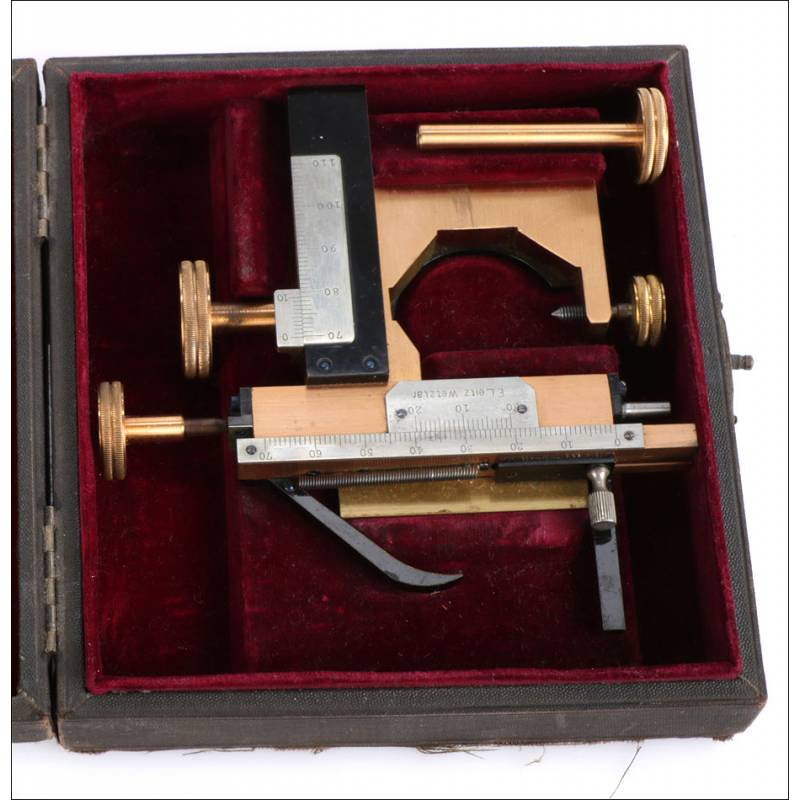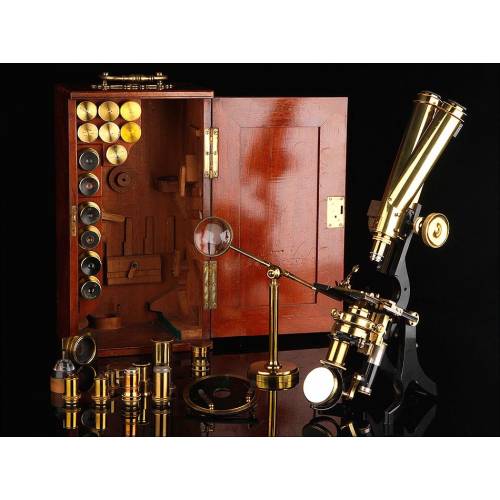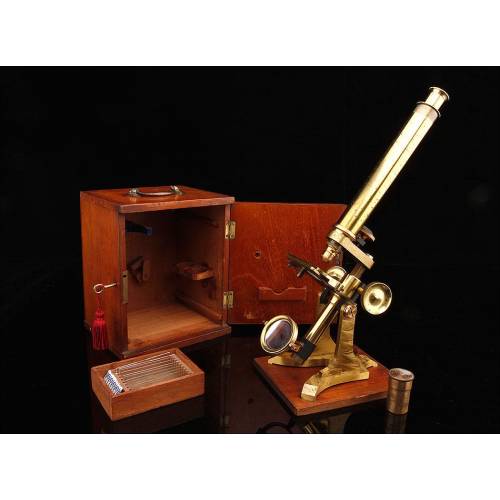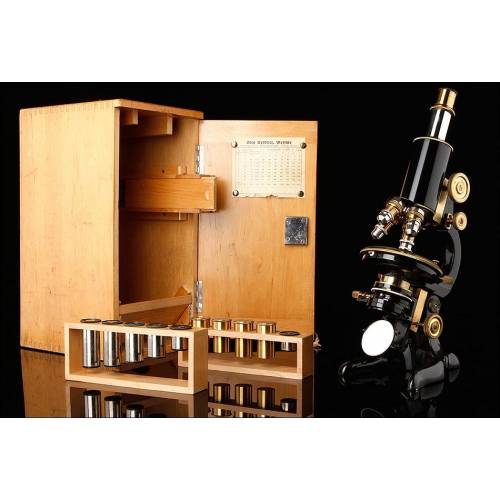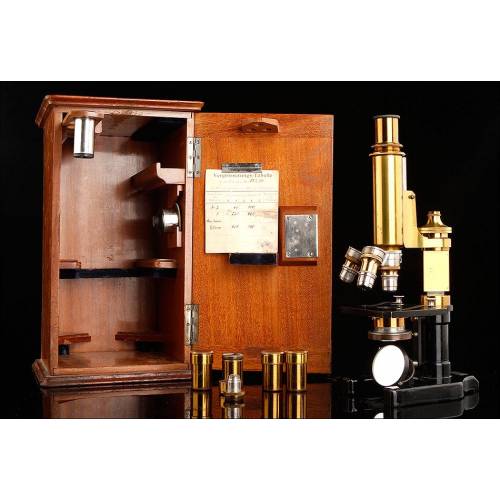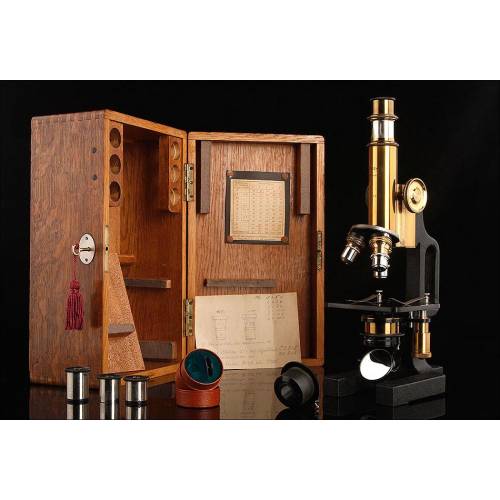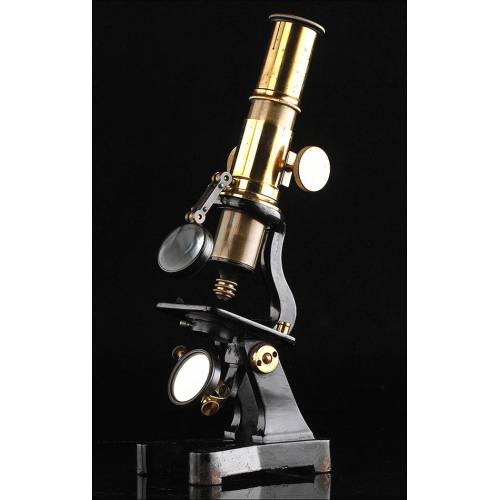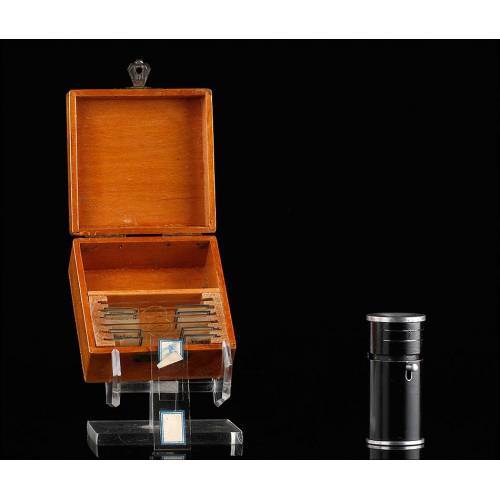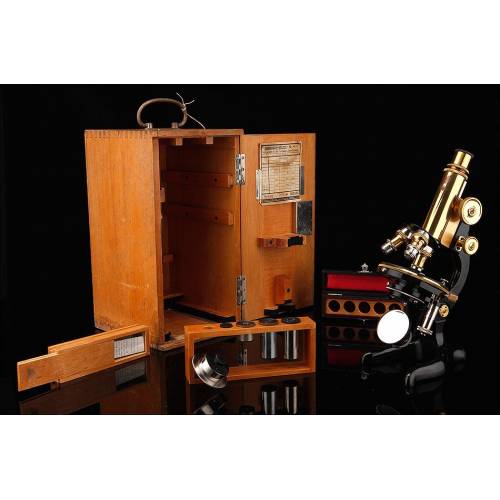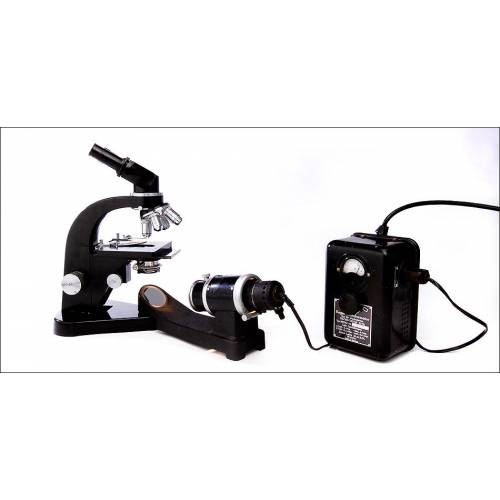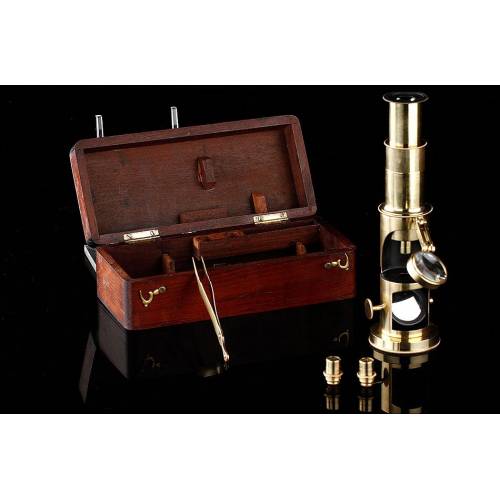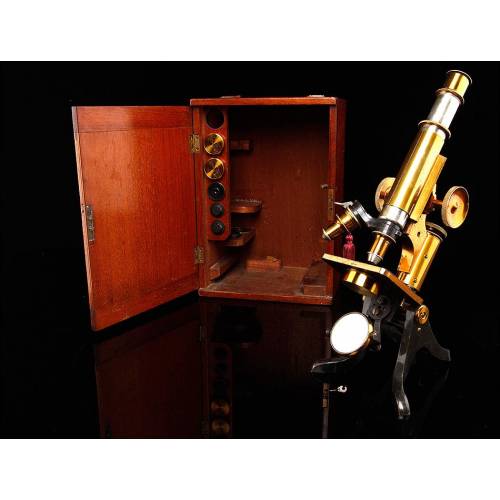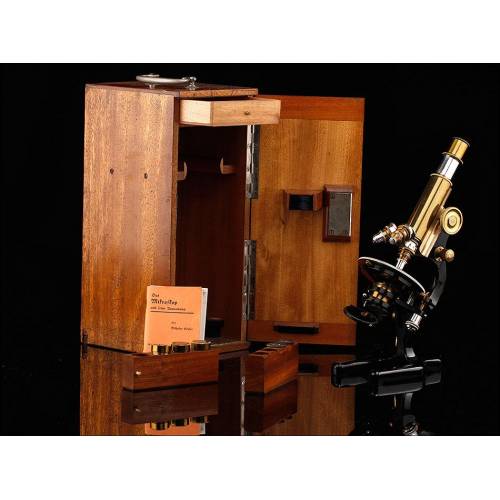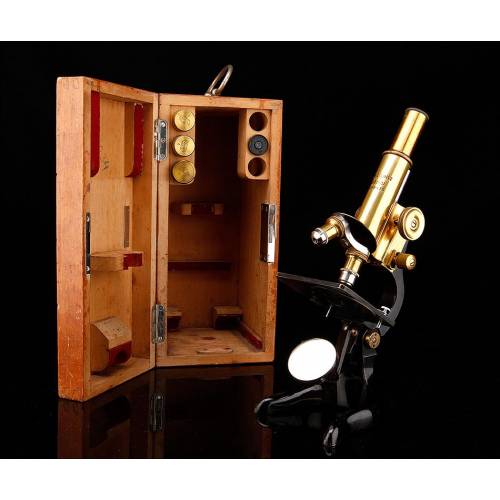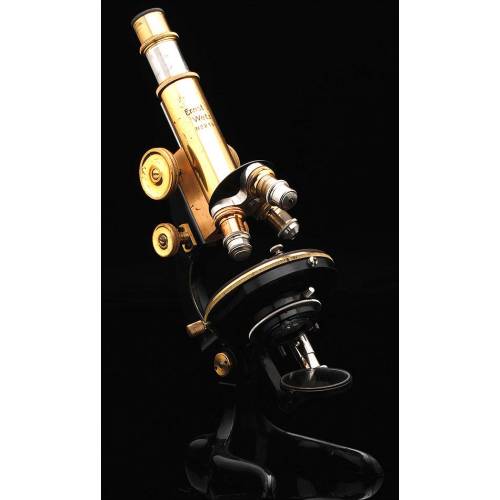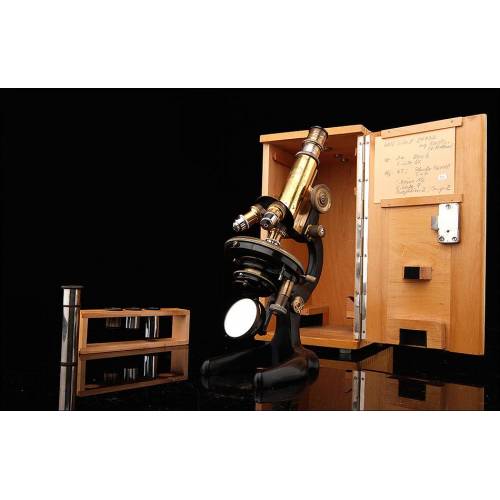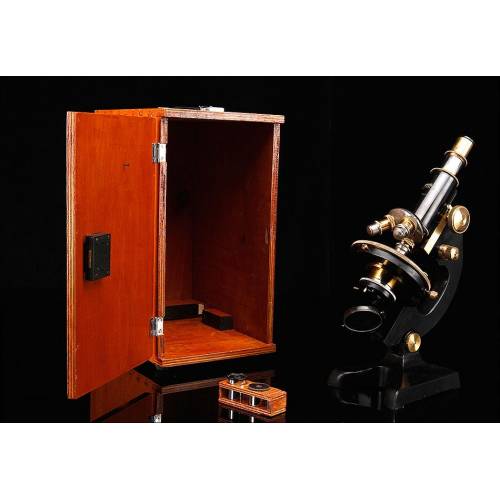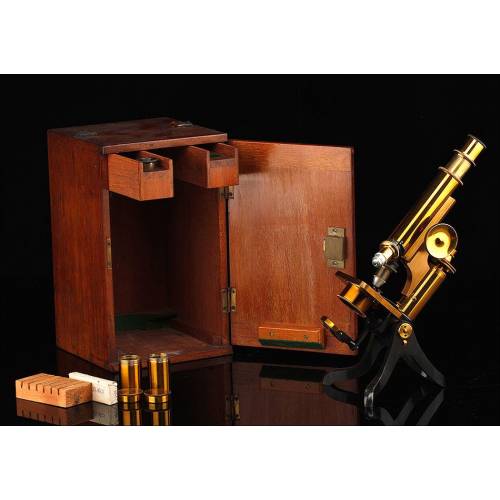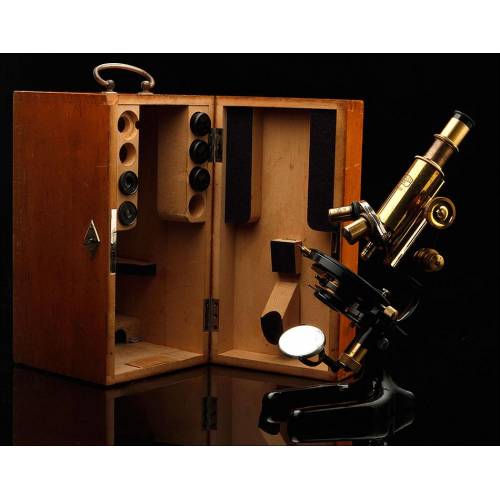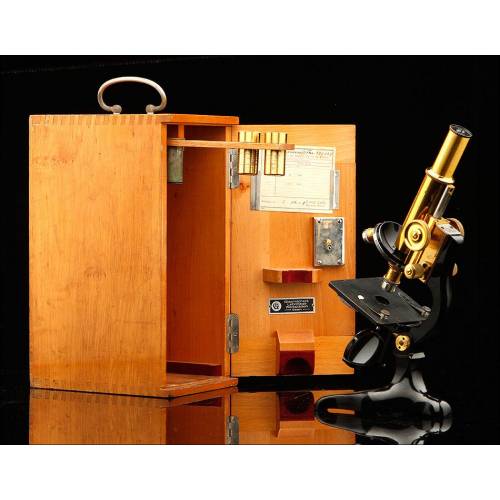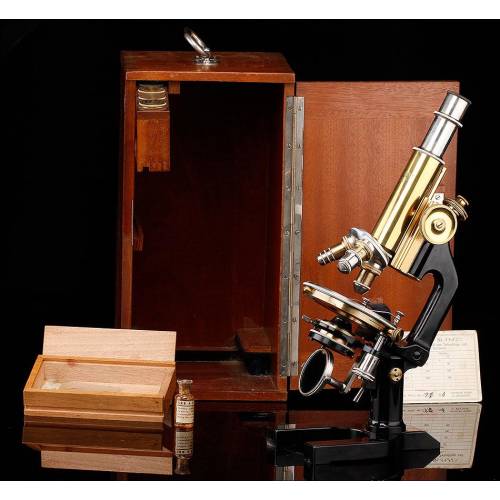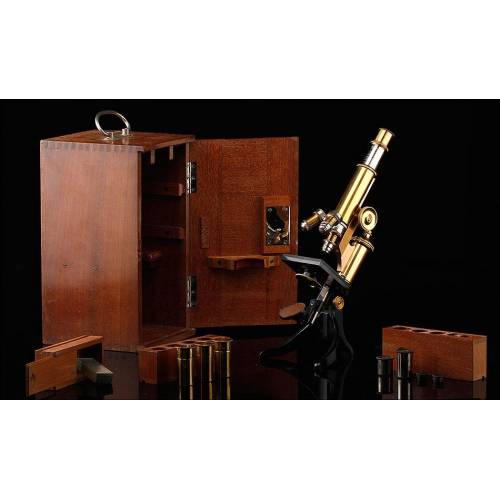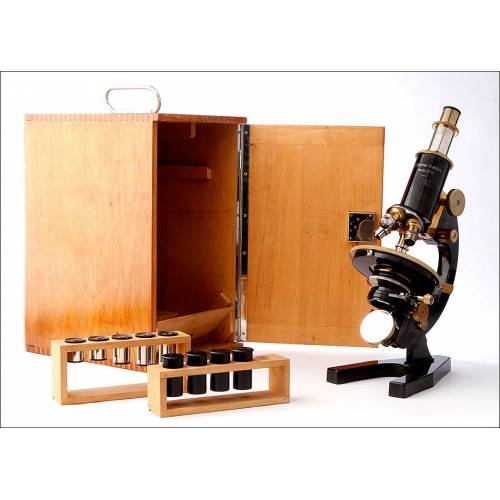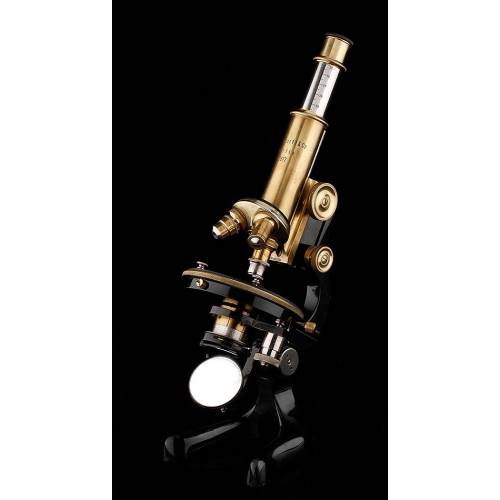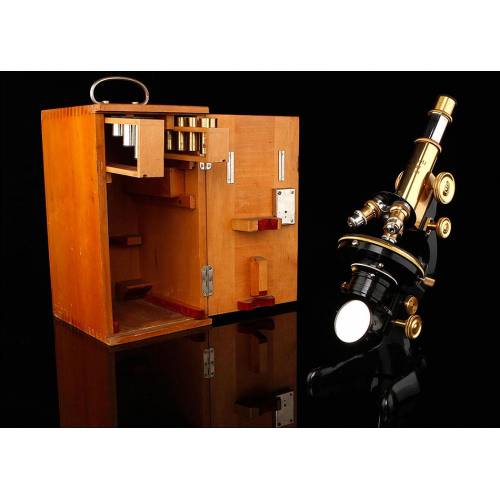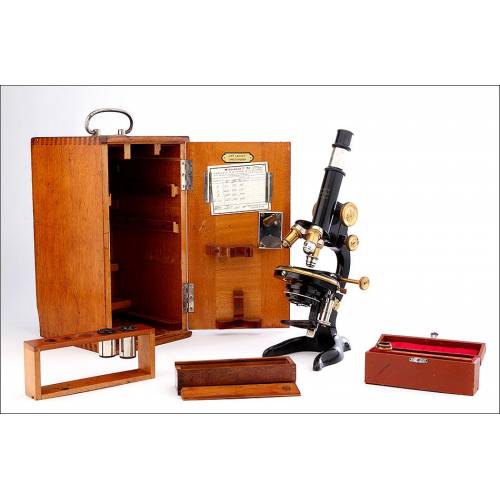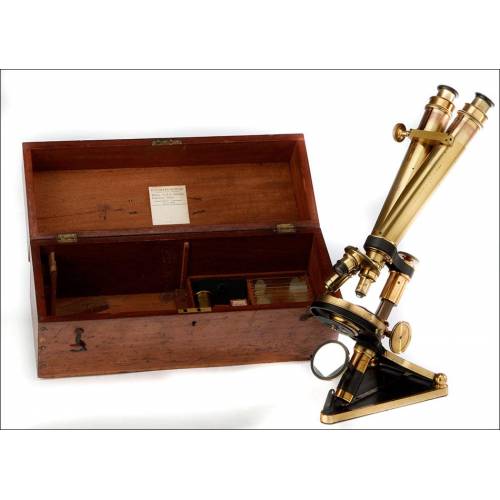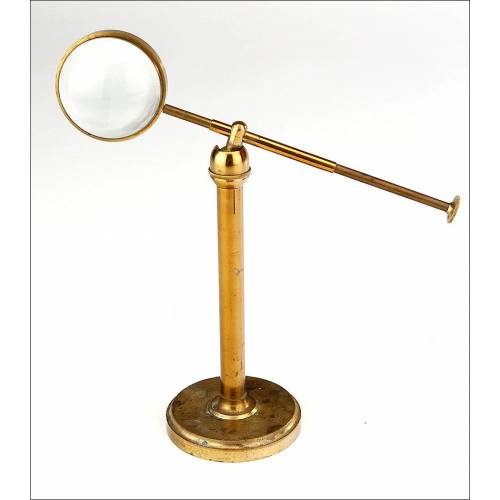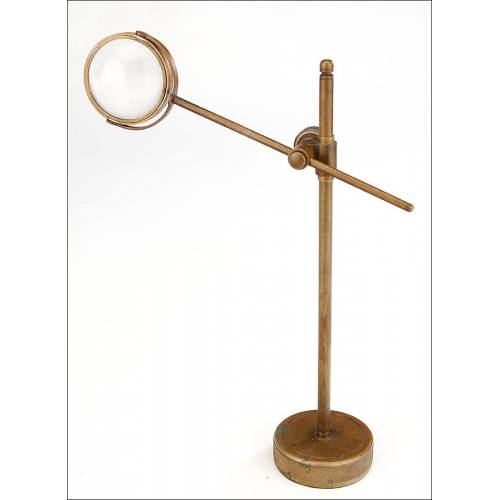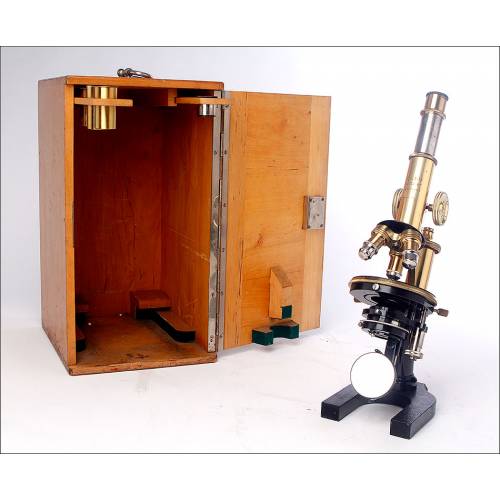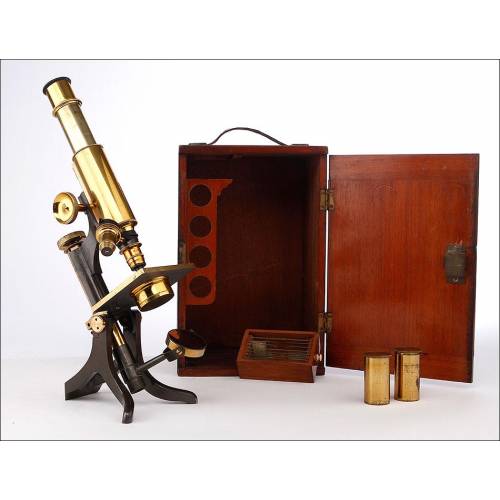C-678
Antique Leitz Microscope Mechanic Board. Germany, Circa 1900
An antique Leitz microscope mechanical plate. To regulate the micrometer adjustment of the specimens. Original case. In excellent condition.
Sold!
Antique mechanical sample stage for Leitz microscope in its original case, amazingly preserved and complete. This stage for micrometrical adjustments comes from Germany, where it was made circa 1900. Though being such an ancient piece, it remains in excellent condition and can be attached to a same-brand. The stages mechanism mixes two metal finishes: brass, coppery and silvery, making up a charming and singular piece which has survived to our days with scarcely any signs of the trace of time. One of the pieces with graduated scales bears the manufacturers name, LEITZ WETZLAR, clearly engraved in the metal surface. This name is also engraved in the cases lid, complete in this occasion (with the E of Ernst). The sample stage is a great piece of mechanic engineering, whose endurance and a precision make it worthy of the manufacturer companys prestige. The storing case is covered of black leather outside and dark-red velvet inside. The leather covering shows some signs of wear at the edge and looks slightly worn, while the inner velvet remains in good condition. The lock is original and remains functional. This great antique mechanical simple stage for Leitz microscope is a great example of the high quality of turn-of-the-century German optic engineering, being a perfect item for a good collection.Ernst Leitz Wetzlar History The beginnings of the famous optic material manufacturing company named Ernst Leitz Wetzlar can be found in the first half of the 19th century, when the mechanic and selft-taught mathematician Carl Kellner founded the Carl Kellner Optisches Institut in Wetlzar, Germany. After his early death his widow maintained the business, and in 1864 the mechanical engineer Ernst Leitz entered the company. Just five years later, Leitz took control of the firm and changed its name for Ernst Leitz Wetzlar. Leitz led the company to success after introducing improvements such as serial production, raising sales volume rapidly after 1871. Leitz microscopes included technical improvements that increased their quality; by the late 19th century the company already had a worldwide reputation. Ernst Leitz died in 1920 and the leadership of the firm passed to his son. As well as for their microscopes and optic material, Leitz became hugely famous for their famous Leica cameras (abbreviation of Leitz Camera).

